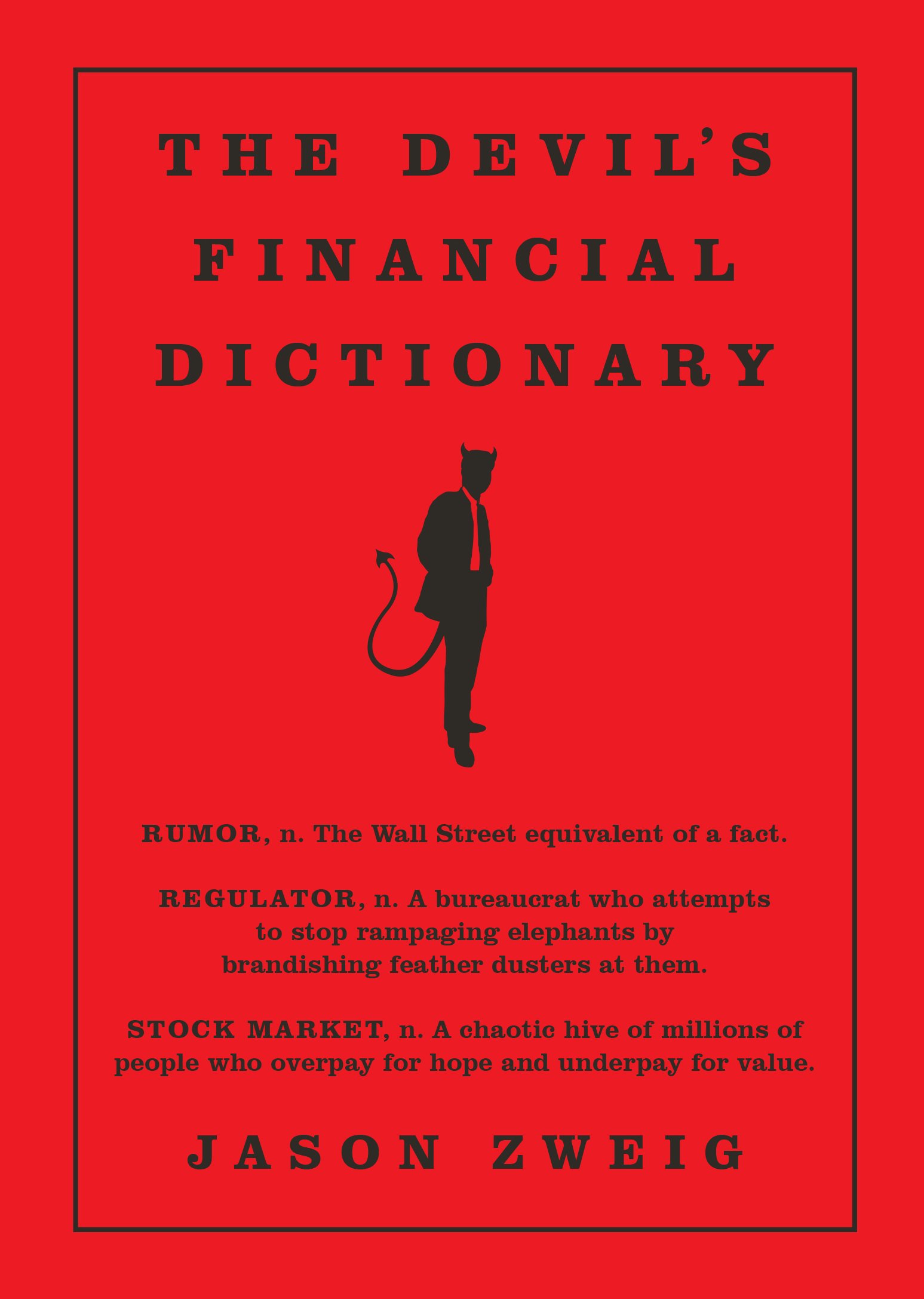This book is not what I expected; it’s still very good. Let me explain, and it will give you a better flavor of the book.
The author, Jason Zweig, is one of the top columnists writing about the markets for The Wall Street Journal. ?He is very knowledgeable, properly cautious, and wise. ?The title of the book Ambrose Bierce’s book that is commonly called The Devil’s Dictionary.
There are three differences in style between Zweig and Bierce:
- Bierce is more cynical and satiric.
- Bierce is usually shorter in his definitions, but occasionally threw in whole poems.
- Zweig spends more time explaining the history of concepts and practices, and how words evolved to mean what they do today in financial matters.
If you read this book, will you learn a lot about the markets? ?Yes. ?Will it be fun? ?Also yes. ?Is it enough to read this and be well-educated? ?No, and truly, you need some knowledge of the markets to appreciate the book. ?It’s not a book for novices, but someone of intermediate or higher levels of knowledge will get some chuckles out of it, and will nod as he agrees along with the author that the markets are a treacherous place disguised as an easy place to make money.
As one person once said, “Whoever called them securities had a wicked sense of humor.” ?Enjoy the book; it doesn’t take long to read, and it can be put down and picked up with no loss of continuity.
Quibbles
None
Summary / Who Would Benefit from this Book
If you have some knowledge of the markets, and you want to have a good time seeing the?wholesome image of the markets?skewered, you will enjoy this book. ?if you want to buy it, you can buy it here: The Devil’s Financial Dictionary.
Full disclosure:?The author sent a free copy?to me via his publisher.
If you enter Amazon through my site, and you buy anything, including books, I get a small commission. This is my main source of blog revenue. I prefer this to a ?tip jar? because I want you to get something you want, rather than merely giving me a tip. Book reviews take time, particularly with the reading, which most book reviewers don?t do in full, and I typically do. (When I don?t, I mention that I scanned the book. Also, I never use the data that the PR flacks send out.)
Most people buying at Amazon do not enter via a referring website. Thus Amazon builds an extra 1-3% into the prices to all buyers to compensate for the commissions given to the minority that come through referring sites. Whether you buy at Amazon directly or enter via my site, your prices don?t change.

